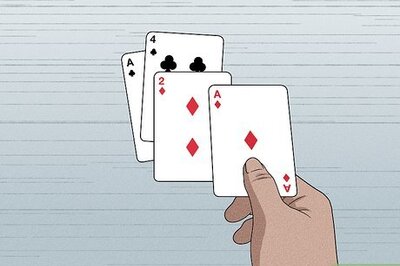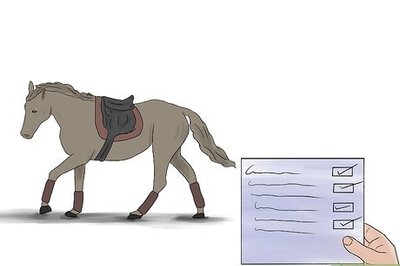
views
The strong protests by various Hindu organisations and political parties over the verdict allowing the entry of women in Sabarimala provide an opportunity for the Rahul Gandhi-led Congress to showcase its “democratic credentials.”
"Constructive dissent" has always been part of grand old party’s chequered history. Old timers would recall how Atulya Ghosh had sought special permission from the then Speaker of the Lok Sabha to air Bengal Congress’ views on Dhanbad-Purnia during 1956 reorganization of states. It so happened that the AICC had a certain view on Dhanbad’s separation from Manbhum district of Bengal, while the Congress legislature party (CLP) in Bengal Assembly under BC Roy had another. The Bengal Congress under Ghosh had its view independent of its high command and the legislative wing.
Therefore, instead of imposing its views, the Congress high command should encourage giving a patient hearing to its Kerala state unit, which has taken a position against SC judgment and its implementation.
In the context of according primacy to religion in politics, such a stand may prove to be politically beneficial for the grand old party both inside and outside Kerala. As Congress president, Rahul, after a no-holds-barred discussion, will have an option to either stick to the liberal view which favours women entering Sabarimala, or fine tune its formulation and go with the Kerala unit’s point of view in the garb of majority opinion.
After Nehru era, Indira Gandhi had inherited many of these powerful factions that continuously put pressure on her to make adjustments and accommodate them. She deftly dealt with the old guard represented by Morarji Desai, YB Chavan, SK Patil and Nijalingappa on the one hand, and the ‘young Turks or the ‘verandah boys’ (young socialist leaders such as Chandrashekhar, Nohan Dharia, Krishna Kant, C Subramaniam, Chandrajeet Yadav and others) on the other.
The young turks inspired the entire new generation of that era when they successfully blocked the entry of Raja Kamakshya Narain Singh of Ramgarh in the Bihar cabinet through the offices of the then chief minister, Hari Har Singh, in violation of an earlier decision that feudal lords who were not part of the Congress should not be inducted in party ruled states as ministers.
C Subramaniam, who was then Tamil Nadu Congress chief, resigned from the CWC. On 14 May 1969, the CWC asked Subramaniam to withdraw his resignation and the Bihar government to remove Raja Kamakshya from the Bihar ministry. Thus, Subramaniam won the day.
HK Dua, a senior journalist who bagged Rajya Sabha nomination from presidential quota when UPA returned to power in 2009, had run a series of articles challenging Sonia Gandhi on grounds of her foreign origins.
Dua was particularly upset by sea of emotions that had prevented Sonia from resigning as Congress chief in May 1999 when three rebels Sharad Pawar, PA Sangma and Tariq Anwar had challenged her on the basis of her place of birth. Dua had remarked then, “The country will have enough sense to not allow itself to become a plaything for Sonia’s uncontrolled ambition, but one can only pity Congressmen who are falling at her feet entreating her to save their party and help it to win an election. It has not occurred to these worthies that the strength of a political party comes from the people and not by kowtowing to 10 Janpath.”
To the old timers, right to dissent and generate open debate has been a hallmark of the Congress politics. Unlike the left’s concept of “democratic centralization” where even a decision arrived by 51 for and 49 against is dubbed as ‘unanimous’ the Congress legacy has been different.
Indira Gandhi herself encouraged formation of various ginger groups like the Congress Socialistic Forum, Nehru Forum and other groups. Often, she promoted one and mid-way encouraged the other.
Dissent in the Congress has traditionally been viewed as a right to live and learn.
(Rasheed Kidwai is a senior journalist. Views are personal)

















Comments
0 comment